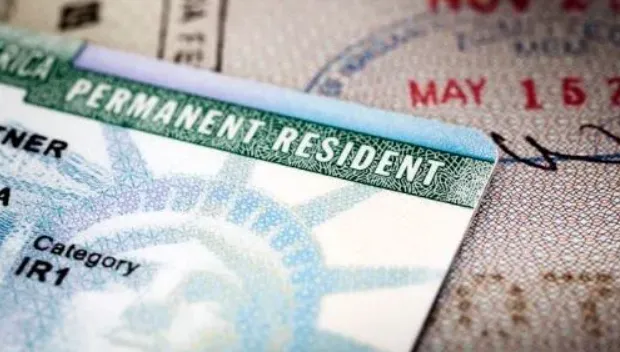Physical Address
304 North Cardinal St.
Dorchester Center, MA 02124
Physical Address
304 North Cardinal St.
Dorchester Center, MA 02124

This article is authorized to be reproduced from: Chinese Life Network; WeChat ID: HuarenLife168
A Chinese lawyer recently shared a sad case on Facebook: “Sister Su” from China spent 15 years to finally get a US green card, but was directly cancelled by the Immigration Bureau because he had lived in the United States for less than 200 days in 10 years.
In 2010, Sister Su bought a house in Seattle and settled down after getting her green card. But she has a stable job in Shanghai and has to take care of her elderly mother, so she has formed a fixed rhythm:Study in the United States in spring and summer, and return to work in autumn and winter。

Last year, her mother broke her leg and she returned to China to take care of her for 10 months. Before departure, she appliedReentry Permitand prepared her daughter’s American student status certificate, thinking that she was foolproof.
However, when I entered San Francisco during this April, the immigration officer asked a series of questions:
Seattle house has been handed over to a friend for three years
Work contracts in Shanghai in the past two years
Medical insurance and credit card bill delivery addresses are all in China
Even the supermarket membership card is dormant
Faced with her explanation that “has a certificate of return to the United States and her daughter goes to school in the United States”, the immigration officer responded coldly:Return to the United States only guarantees that you can enter the country, which does not mean that you regard the United States as your home.. A week later, she received a letter of rejection – the reason for “long-term departure and lack of substantive life connections”, and the green card was officially terminated.
She explained that the US Immigration Bureau’s standard for measuring “whether you live permanently” does not depend on whether you own a property or whether your family lives in the United States, but on the true traces of your own life in the United States.
Whether the driver’s license is valid, whether he or she often participates in the child’s school activities, whether he or she uses a bank account and credit card in the United States, and whether he or she has active social interactions in the community are all regarded as the basis for judgment. If you are just staying in the United States passively without actively participating in local life,

For example, not applying for a library card, not participating in community activities, or participating in volunteer services are also likely to be considered a lack of signs of integration. Single proof materials are often not convincing enough. The Immigration Bureau is more inclined to see a complete set of mutually verified life trajectories, such as whether you personally pay the utility bill, whether you have a neighbor to testify that you have lived in a long time, whether your takeaway and shopping delivery address is in the United States, etc.
She suggested that, especially female immigrants, they should accumulate these real residence evidence in their daily lives on weekdays, such as using a US mobile phone number to bind shopping platforms and social accounts, transfer some financial management funds to US accounts and maintain active consumption, join local mother groups or interest groups, regularly donate or volunteer services to US charities, and actively maintain contact with children’s schools. If you need to leave the country for a long time due to family or work reasons, you should also find ways to retain continuous interaction with the United States during your departure, such as entrusting relatives and friends to help maintain the property, pay bills regularly, or returning to the United States for a short period of time many times a year to avoid being considered completely out of local life.
Qiu Zhang emphasized that a green card is not just an identity card, but also a reflection of your living status in the United States. In the eyes of the Immigration Bureau, what can truly retain its identity is not how much assets you have, but whether you live here, integrate into and maintain close ties with society. Putting the focus of life in the United States will not be a waste of time, like Sister Su, one day, watching years of hard work go to waste.
Everyone commented on this green card that has been insured for 15 years is gone. Is it wrong?
Related readings: